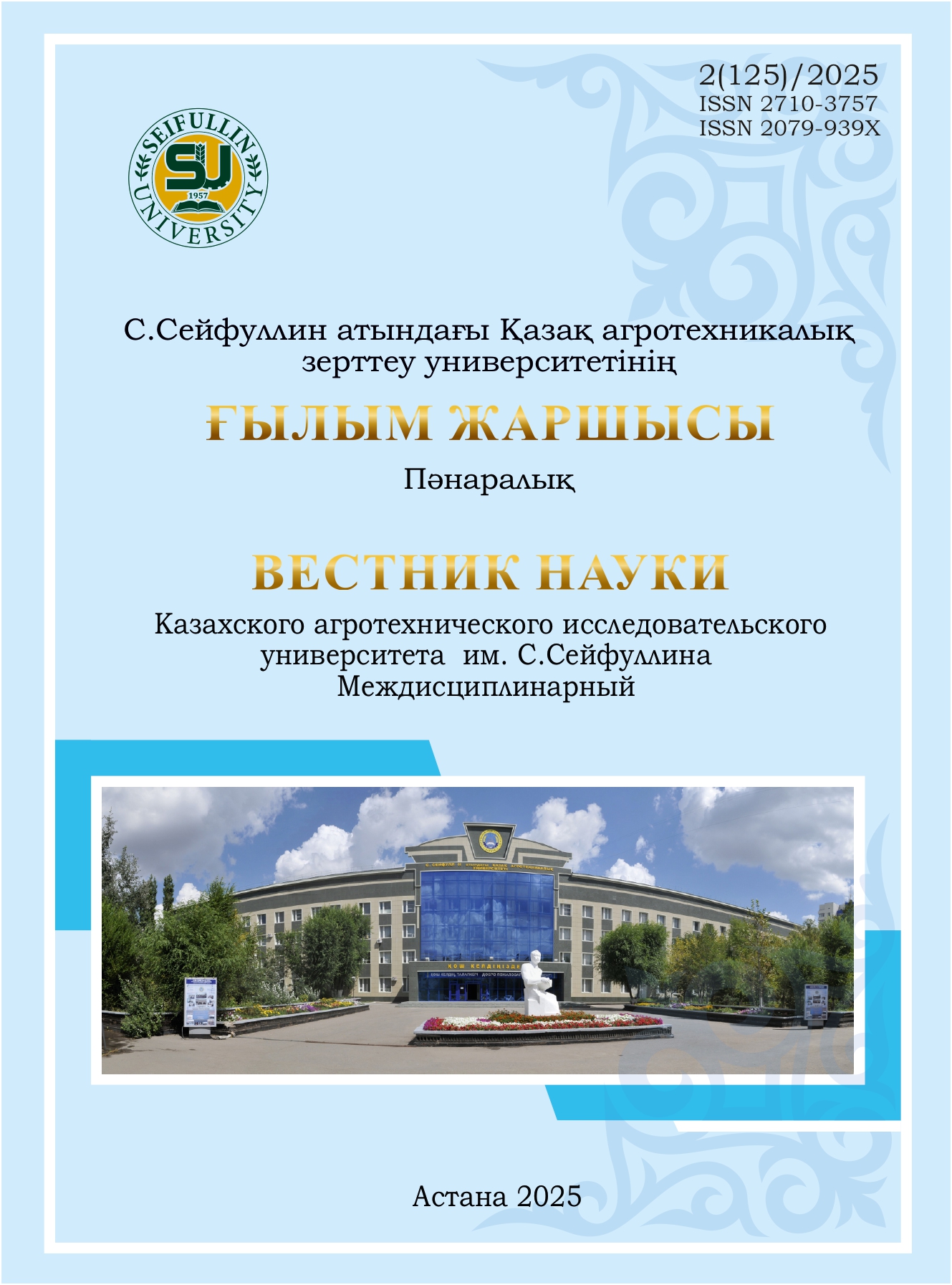Isolation and characterization of salt-tolerant microorganisms from the rhizosphere of Аsteraceae plants
DOI:
https://doi.org/10.51452/kazatu.2025.2(125).1836Keywords:
microorganism; saline soil; Asteraceae family; salt-tolerance.Abstract
Background and Aim. Soil salinization is one of the most crucial factors limiting global agricultural productivity and threatening food security. In addition to natural causes, anthropogenic activities accelerate the degradation of arable land, intensifying the process of soil salinization in arid and semi-arid regions. Excessive salt levels reduce crop yield and quality. Therefore, the search for effective methods of saline soil bioremediation remains highly relevant. This study aimed to investigate the rhizosphere microflora of plants from the Asteraceae family growing in saline soils in Northern Kazakhstan and to identify new salt resistant microbial strains.
Materials and Methods. Quantitative and compositional analyses of rhizosphere microorganisms from Asteraceae plants were conducted using serial dilution and bacteriological inoculation on solid nutrient media . Pure cultures were isolated and then tested for salt tolerance by culturing them on potato agar supplemented with sodium chloride at concentrations of 1%, 2%, 3%, 4%, 5%, 7%, and 10%. Salttolerant strains were selected from the rhizosphere samples.
Results. The study presents the results of microbiological analyses of rhizosphere samples collected from Asteraceae plants, growing in saline soils of Shortandy and Tselinograd Districts in the Akmola region. Several new strains were isolated. In addition to species capable of utilizing organic and inorganic forms of nitrogen, cellulose-degrading, nitrogen-fixing bacteria, microscopic fungi, and actinomycetes were also recorded. The salt tolerance of isolated strains was evaluated on selective media with varying sodium chloride (NaCl) concentrations. As a result, several long-term viable strains suitable for use in saline environments were identified.
Conclusion. A total of 11 microbial strains were isolated from the rhizosphere of the wild Asteraceae plants. Among them, six demonstrated significant resistance to saline conditions when grown on potato agar with sodium chloride. In the future research, these strains will serve as a basis for developing functional-group-based biopreparations aimed at saline soil remediation and enhancing agricultural productivity.

